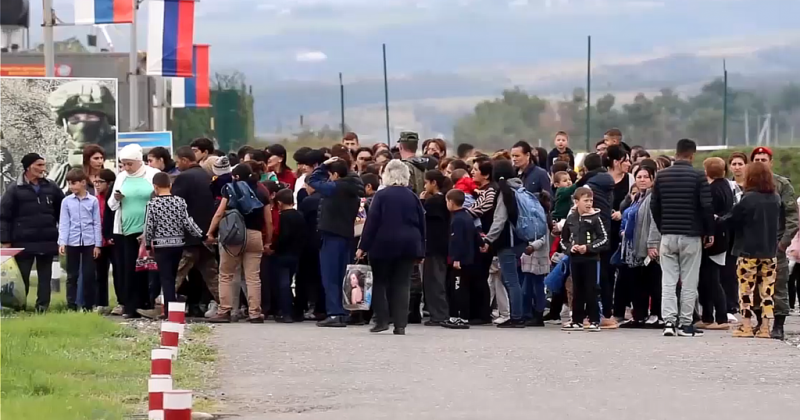
Human Rights Violations in Artsakh: Starvation, Isolation, and Cultural Loss
By Guest Writer Tatiana Gnuva
Image: "Ethnic Armenians of Nagorno-Karabakh evacuated from their homes" by Mil.ru is licensed under CC BY 4.0 DEED.
Nagorno-Karabakh, also known as “Artsakh,” was home to 120,000 people, most of whom were ethnic Armenians. Artsakh is isolated from the Republic of Armenia and is only connected to the country through the Lachin corridor. The independent republic of Artsakh functioned as a de-facto breakaway Armenian state yet was long claimed by Azerbaijan. For centuries, Artsakh was a primarily Armenian region, but in the early 1920s, it was incorporated into the Azerbaijani Soviet Socialist Republic under the decision of the USSR’s Joseph Stalin. Starting in December of 2022 and lasting over ten months, Azerbaijan slowly implemented its strategy to claim the territory. The country’s actions plunged the region into poverty and insecurity, dramatically lowering human rights standards. In December of 2022, Azerbaijani protestors blocked the corridor, effectively limiting movement to Artsakh. The protestors masqueraded as an environmental demonstration to...

